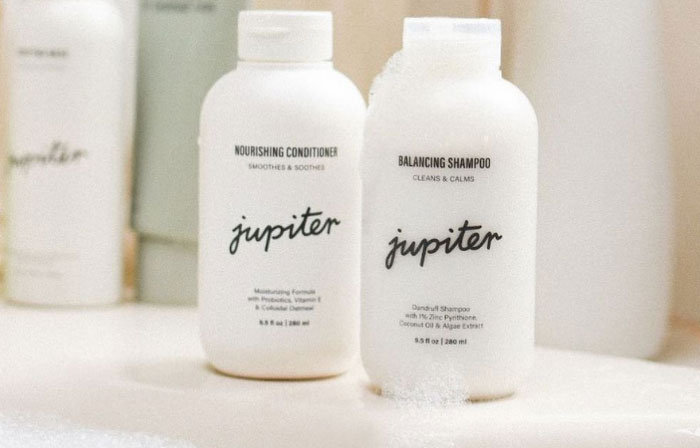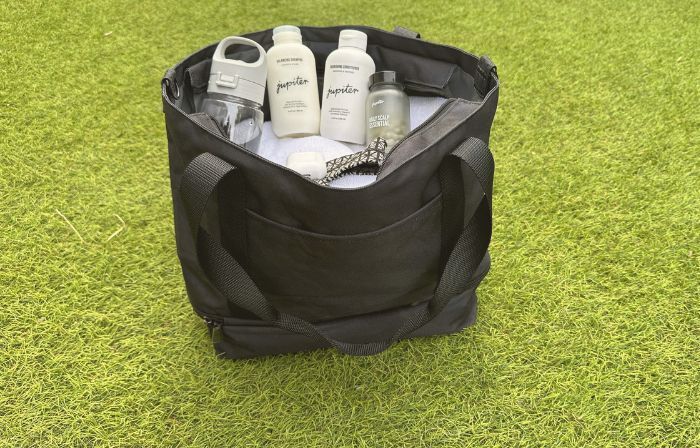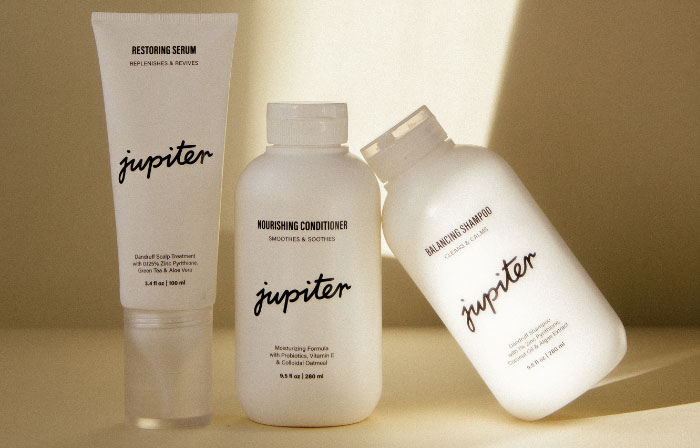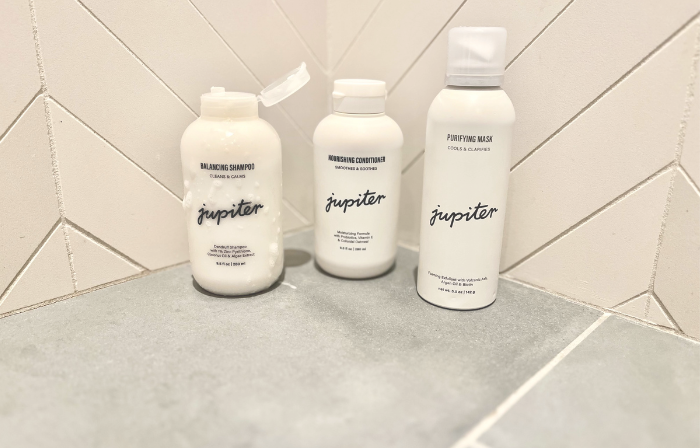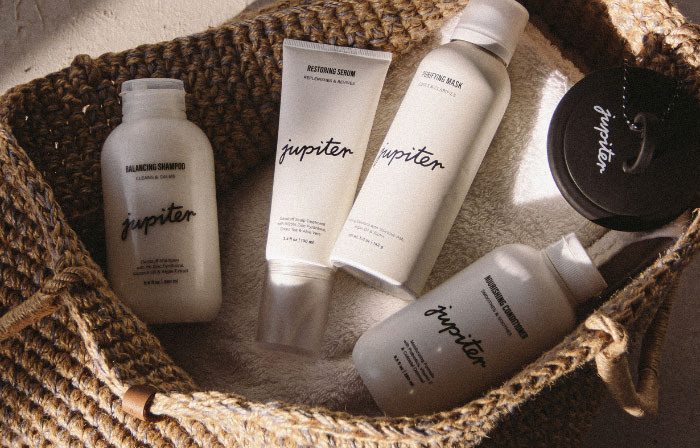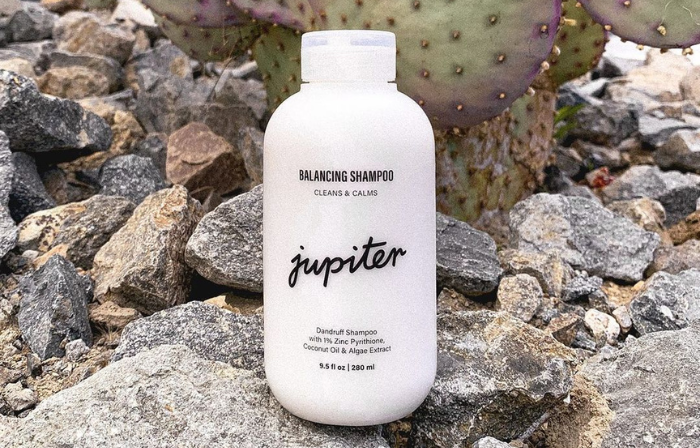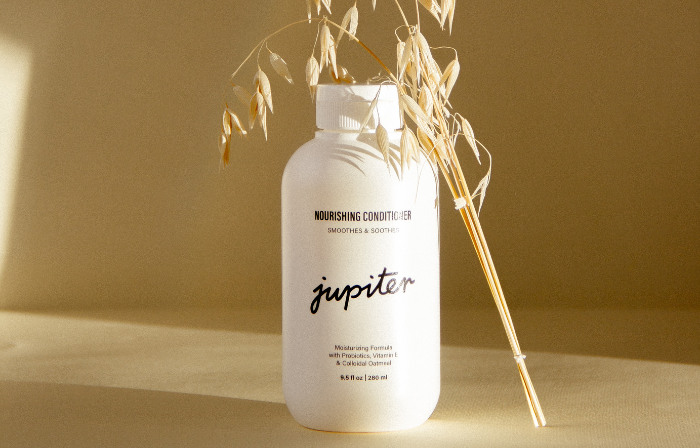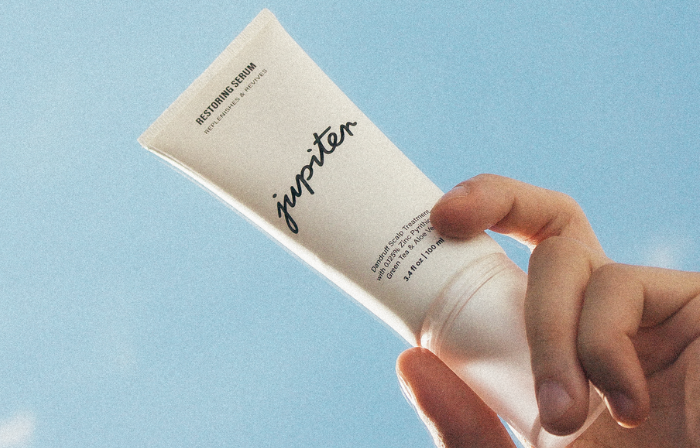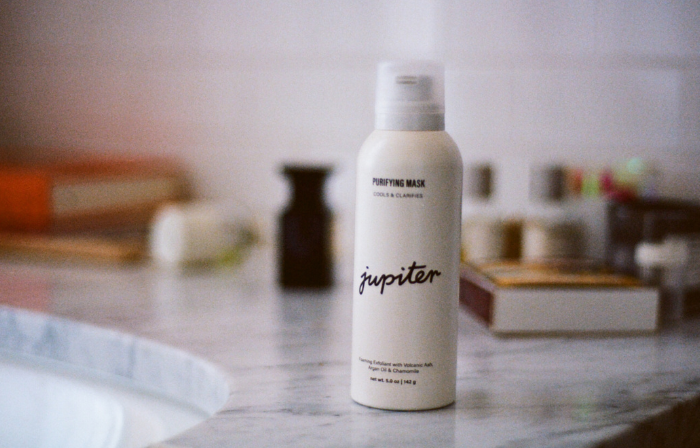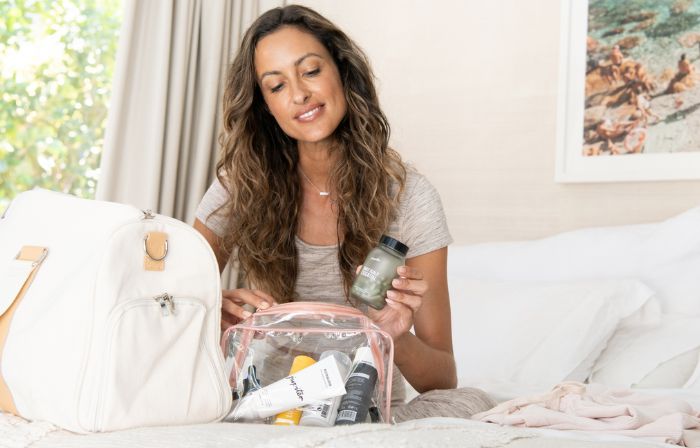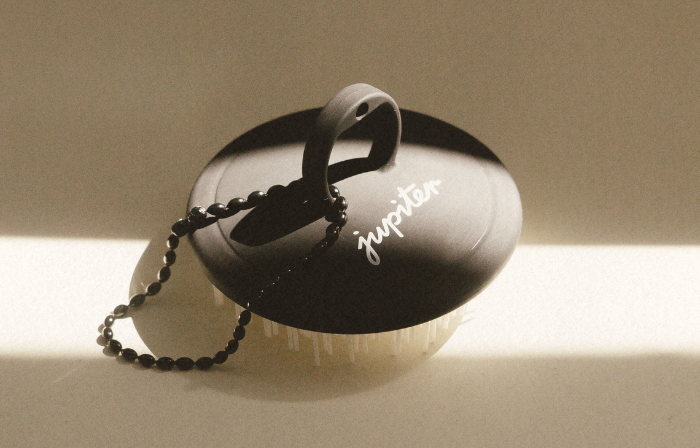When it comes to your mane, you want the healthiest strands possible. Despite attempts to achieve that fantastic head of hair, some products can cause more damage than good. You may even experience complicated scalp conditions that send your hair goals plummeting.
If your scalp develops an unpleasant odor, it’s a sign that something is amiss. Trust your instincts and seek treatments that target the source of the problem.
What Are the Elements of a Smelly Scalp?
Scalp smell: so common, even TikTok has plenty of videos about it. Scalps can smell like anything from cheese, mildew, or even sulfur. No matter what it smells like, there’s something amiss.
Let’s say your scalp has a cheesy, pungent smell. You can often attribute the smell to an overgrowth of yeast, which naturally exists all over the body. The build-up emits a cheesy or sour milk smell.
A mildew smell is often caused by the hair’s inability to dry, making a breeding ground for a mold-like smell. Combined with an overgrowth of bacteria or fungus, it sustains its mildew smell.
If your scalp smells like sulfur, it could be due to a build-up of bacteria emitting a sulphuric smell, and it needs to be thoroughly washed to rid yourself of the excess bacteria.
If you discover that your scalp exudes a displeasing sour or moldy odor, don’t be ashamed; you aren’t alone. Many people struggle with scalp odor. There are several factors that contribute to this condition.
We’ve listed a few causes, so you can figure out how to get back on track to a clean-smelling healthy head of hair.
What Causes Scalp Odor?
Several factors contribute to scalp odor, including:
Excessive sweating
Skimping on the shampoo
Fungal growth
Underlying skin conditions
Overwashing your hair
Wearing hats for too long
Despite popular belief, scalp odor isn’t merely caused by neglecting a day or two of shampoo use (though that can be a cause). Several factors contribute to a less than fresh-smelling scalp. The unmistakable sign of a smelly scalp is a slight, moderate, or even unbearable odor.
If you feel plagued by scalp odor, fear not. Below, we dive into the most common reasons for smelly scalp so you can treat the problem head-on.
Excessive Sweating
Everyone gets sweaty. It’s the body’s way of cooling down and maintaining a healthy temperature. Without sweat, we’d be in trouble. But there is such a thing as too much sweat.
Hyperhidrosis is a condition that produces excessive sweating in certain parts of the body. Dermatologists diagnose and treat this condition by performing various tests and medical exams.
Menopause, hormonal imbalances, sweat glands, stress, and underlying illness may cause hyperhidrosis. Those with this condition often use a combination of treatments to manage perspiration. Unfortunately, when sweat accumulates, it can cause an unpleasant scalp odor, mixing with the bacteria that call your scalp home. The same science that causes your armpits to smell after vigorous exercise (even with a strong antiperspirant) is the very same that makes the scalp smell.
Skimping on the Shampoo
Some people think that frequent hair washing causes big problems. While it’s true that overwashing can dry out your hair’s natural oils, consistent washing is key to avoiding odorous consequences.
Neglecting frequent shampoo sessions is a common cause of scalp buildup and odor. The skin on your scalp contains a microbiome, or environment, of tiny organisms. Within this environment, a mix of naturally-occuring bacteria works diligently to maintain the scalp’s health.
Forgoing shampoo for a day or two won’t hurt, but several days of skipping on suds may take a negative toll on your scalp health. Even if you use a dry shampoo to soak up excess hair oils, it’s not a substitute for an actual wash. When the microbiome is not adequately cleansed, bacteria, sebum (aka oil), and dead skin cells accumulate, potentially producing foul odors for some of us.
Environmental elements such as smoke, smog, dust, and gaseous pollutants also affect the hair and scalp. A fresh, clean-smelling head of hair begins with a good shampoo, but shampoo doesn’t always get to the root of the problem.
Fungal Growth
The accumulation of sweat, oil, and dead skin cells on the scalp creates the perfect environment for the overgrowth of yeast, called Malassezia. While shampooing does help to wash away these elements, it doesn’t purify the scalp. The only way to control fungal growth is to use a shampoo with an active ingredient that literally gets at the root of the fungal overgrowth. That’s why we’ve scientifically formulated our Balancing Shampoo with 1% Zinc Pyrithione, and paired it with a host of natural ingredients that support a cleansed and refreshed scalp.
In addition to using an anti-dandruff or anti-fungal shampoo, try using a purifying exfoliant that supports the elimination of toxins, buildup, and impurities. Our foaming scalp mask uses volcanic ash to gently exfoliate and clarify, leaving your scalp and hair feeling fresh and smelling clean.
Underlying Skin Conditions
If you’ve tried all of the “normal” solutions and haven’t gotten relief, it’s possible your woes may be caused by an underlying skin condition that makes things harder to manage.
Dandruff causes an uncomfortable scalp situation. Scratching an itchy scalp irritates the skin, leading to bacterial growth, inflammation, and even bleeding. All of which can lead to scalp odor. If that scalp odor accompanies inflammation or redness, you may be experiencing a more severe skin condition.
Scalp psoriasis, seborrheic dermatitis (dandruff), or contact dermatitis may be the culprit of your scalp woes. Most dandruff can easily be treated at home; however, more persistent skin conditions must be treated by a doctor or dermatologist. With proper treatment, a smelly, itchy scalp can be prevented.
Overwashing Your Hair
Yes, there is such a thing as too much of a good thing. We acknowledge that underwashing is bad, but overwashing can cause chaos on the scalp’s microbiome depending on your hair and skin type.
Overwashing your hair can lead to scalp dryness for some. When natural oils are stripped away by harsh shampoos, the sebaceous (oil) glands on the scalp kick into over-drive, producing excess sebum to compensate for lost hydration.
Healthy bacteria are also washed away, leaving the scalp vulnerable to irritation; these reactions often result in scalp odor. Cleanse your hair and scalp often, but don’t overdo it. We recommend about 3-4x per week depending on your hair and scalp type. Consult with a hair professional to get a sense of what your hair needs to remain in good graces with your scalp. For example, a gentle, balancing shampoo and conditioner can help keep your tresses in tip-top shape without removing excess natural oils.
Wearing Hats for Too Long
Hats and scarves are fun and fashionable to wear, but allow them to linger atop your crown for too long, and you’re in for a stinky situation. Headwear traps heat underneath, causing sweat and odor.
Limit wearing hats and scarves by donning them solely during outdoor winter weather, sun exposure, or extreme weather situations. Your strands and scalp might just thank you. You should also thoroughly wash a hat or scarf after wearing it to prevent a build-up of grime. Just because it “smells like it could last one more day” doesn’t mean bacteria and sweat-build-up aren’t creating their own ecosystem in your accessories!
Neglecting frequent shampoo sessions is a common cause of scalp buildup and odor.
How To Treat a Scalp That Smells
How do you treat a smelly scalp? You may be able to nix the issue with easy to use at-home hair care products to help you get your scalp microbiome on the right track. In more severe circumstances, the help of a professional may be required.
Medicate Your Scalp
Zinc Pyrithione is clinically proven to treat dandruff, a potential cause of scalp odor. To stop itchy dandruff, flakes, and irritation in their tracks, use treatments formulated with Zinc Pyrithione.
This effective ingredient helps to normalize sebum production and reduces the hardening of skin cells (epithelial keratinization). Zinc Pyrithione also helps stop the growth of the yeast Malassezia which can cause dandruff and foul odor.
Dandruff affects nearly 50 million people in the U.S.; every gender and ethnicity may experience this treatable scalp condition. Your scalp’s microbiome requires a balanced environment to remain healthy and odor-free.
Whether you experience mild, moderate, or severe flaking, irritation, redness, or excess oil production, Zinc Pyrithione can help effectively eliminate these symptoms and treat the underlying cause.
Purify Your Scalp
Like your facial skin, your scalp also deserves a lot of TLC. Detox and purify your scalp with a weekly Purifying Mask treatment. This cooling scalp mask helps remove dead skin cells, nourish the scalp, and can leave your hair and scalp smelling fresh and clean.
Using a detoxifying scalp mask and balancing shampoo and conditioner helps ensure your scalp remains cleansed, clear, and odor-free. To help potentially protect your scalp from odor and dandruff, apply a leave-in Restoring Serum containing Zinc Pyrithione. The serum works between washes to control oil production and may help address itching and soothe redness.
Nourish Your Scalp From the Inside Out
Believe it or not, diet is a major factor in our scalp health. Oftentimes, deficiencies in certain key vitamins and nutrients can lead to skin issues on your scalp (think dryness and flaking) that are contributors to scalp odor. Look for a scalp supplement that is scientifically formulated with scalp healthy ingredients like turmeric, ashwagandha root, greens and mushrooms, and vitamins A, C, and E. Finally, remember to include a healthy balance of nutritious fruits and veggies in your diet and eliminate processed and overly-sugary foods.
See a Doctor
More severe skin conditions require the treatment of a doctor or dermatologist. If you are experiencing psoriasis, contact dermatitis, seborrheic dermatitis, or hormonal imbalances, consult with a medical professional.
These skin conditions often require more sophisticated treatment methods to eliminate the symptoms and treat the epidermal upset.
How To Prevent a Smelly Scalp
A smelly scalp may be prevented by following a few simple practices.
Avoid scratching your scalp. Itching irritates the skin and encourages the sebaceous glands to produce excess sebum. Sebum contributes to dandruff and scalp odor.
Avoid harsh shampoo and other hair products containing perfume, dyes, sodium lauryl sulfate (SLS), and Para-phenylenediamine (PPD). These ingredients can irritate the skin.
Learn to manage stress by practicing relaxation techniques such as yoga or deep breathing exercises. Stress triggers the sebaceous glands to produce excess oil on the scalp. Stress may also cause hormonal imbalances in the body.
Consume clean foods and limit those foods containing pungent odors such as cumin, onion, and garlic. These food odors can be excreted through the sebaceous glands and may contribute to scalp odor.
Use medicated shampoo, conditioner, and other unique hair care treatments for a dandruff-prone scalp. These products soothe the skin and can help keep flakes and irritation away when formulated with Zinc Pyrithione.
What’s the Next Step in Treating Your Scalp?
Don’t let a smelly scalp ruin your day. If your scalp odor originates from flakes or infrequent shampoo sessions, simply reach for an anti-dandruff shampoo formulated with Zinc Pyrithione and soothing conditioner.
These hair care products help loosen dead skin cells and debris from the scalp, while soothing and moisturizing your skin.. Your scalp and strands are left feeling clean and odor-free
For a complete elevated hair care system, check out our “Whole Darn Set.” It contains all the products you need to help address an itchy and flaking scalp in the comfort of your own home, and its all-natural scent will leave your hair refreshed.
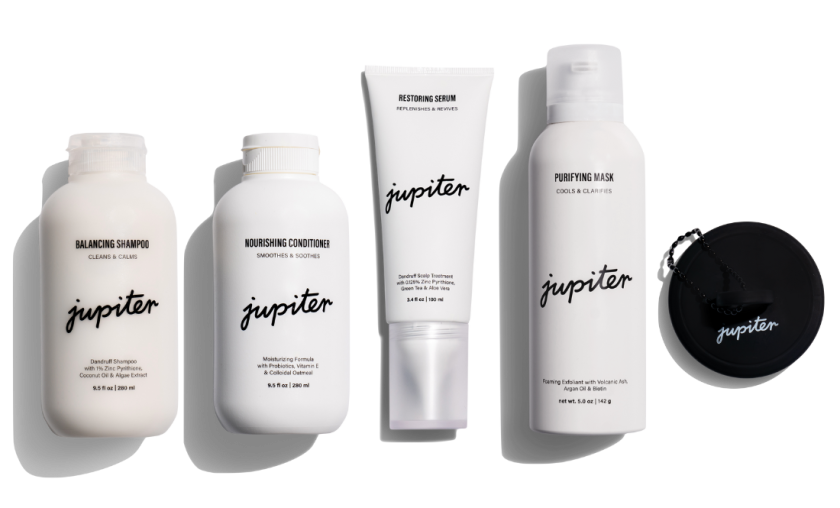
Built for those looking to address constant or moderate to severe flaking, redness, or irritation and want their mane left looking refreshed and silky smooth.
